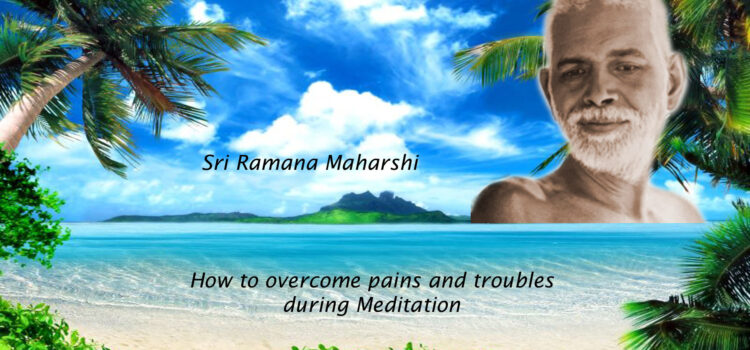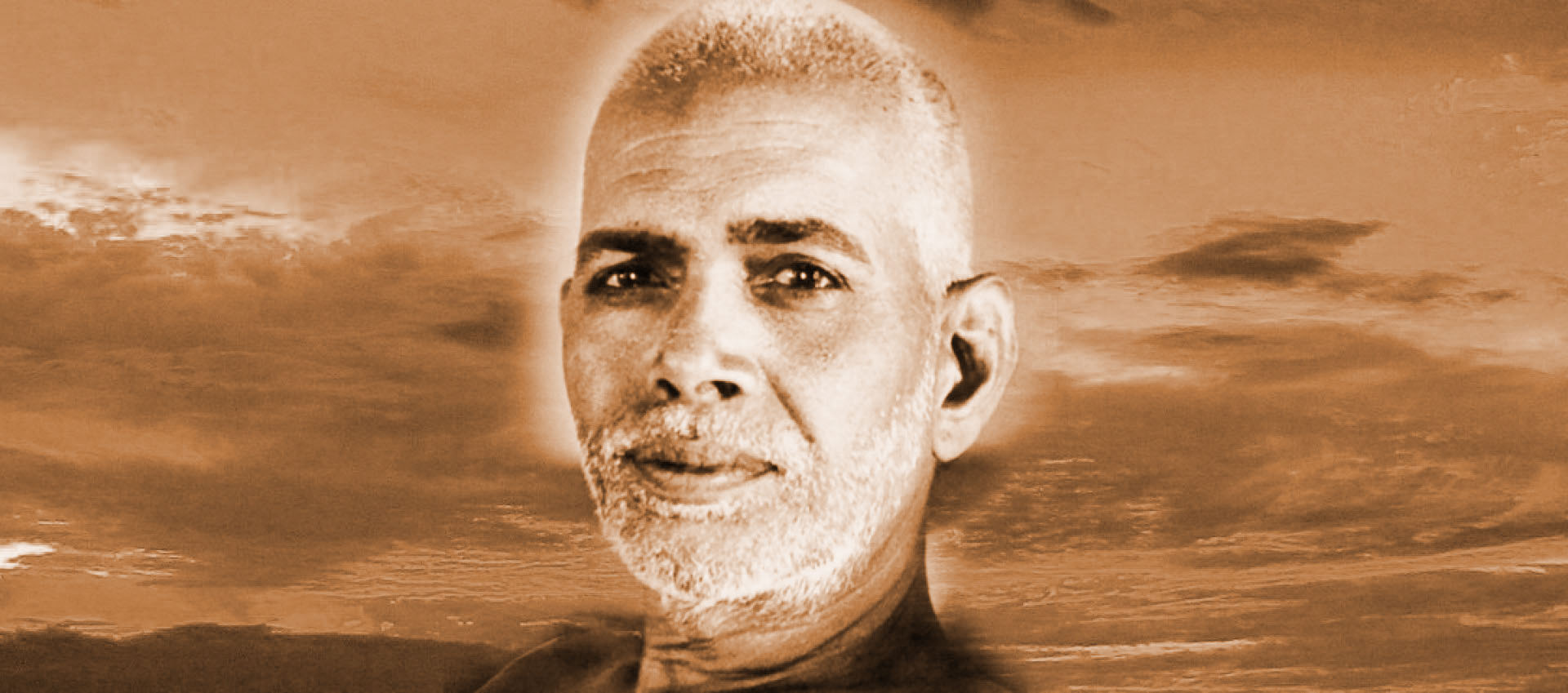
How to overcome pains and troubles during meditation
Talk 462.
Mrs. Dhar had been anxious to ask some questions and get help from Sri Bhagavan. She approached Him with great hesitation and gently related her troubles:
My attempts at concentration are frustrated by sudden palpitations of the heart and accompanying hard, short and quick breaths. Then my thoughts also rush out and the mind becomes uncontrollable. Under healthy conditions I am more successful and my breath comes to a standstill with deep concentration. I had long been anxious to get the benefit of Sri Bhagavan’s proximity for the successful culmination of my meditation and so came here after considerable effort. I fell ill here. I could not meditate and so I felt depressed. I made a determined effort to concentrate my mind even though I was troubled by short and quick breaths. Though partly successful it does not satisfy me. The time for my leaving the place is drawing near. I feel more and more depressed as I contemplate leaving the place. Here I find people obtaining peace by meditation in the hall; whereas I am not blessed with such peace. This itself has a depressing effect on me.
M.: This thought, ‘I am not able to concentrate,’ is itself an obstacle. Why should the thought arise?
D.: Can one remain without thoughts rising all the 24 hours of the day? Should I remain without meditation?
M.: What is ‘hours’ again? It is a concept. Each question of yours is prompted by a thought. Your nature is Peace and Happiness. Thoughts are the obstacles to self-realization. One’s meditation or concentration is meant to get rid of obstacles and not to gain the Self. Does anyone remain apart from the Self? No! The true nature of the Self is declared to be Peace. If the same peace is not found, the non-finding is only a thought which is alien to the Self. One practises meditation only to get rid of these alien fancies. So, then, a thought must be quelled as soon as it rises. Whenever a thought arises, do not be carried away by it. You become aware of the body when you forget the Self. But can you forget the Self? Being the Self how can you forget it? There must be two selves for one to forget the other. It is absurd. So the Self is not depressed; it is not imperfect: it is ever happy. The contrary feeling is a mere thought which has actually no stamina in it. Be rid of thoughts. Why should one attempt meditation? Being the Self one remains always realized, only be free from thoughts.
You think that your health does not permit your meditation. This depression must be traced to its origin. The origin is the wrong identification of the body with the Self. The disease is not of the Self. It is of the body. But the body does not come and tell you that it is possessed by the disease. It is you who say it. Why? Because you have wrongly identified yourself with the body.
The body itself is a thought. Be as you really are. There is no reason to be depressed.
The lady was called away and she retired.
The question was however pursued as follows:
D.: Sri Bhagavan’s answers do not permit us to put further questions, not because our minds are peaceful but we are unable to argue the point. Our discontent is not at an end. For the physical ailments to go the mental ailments should go. Both go when thoughts go. Thoughts do not go without effort. Effort is not possible with the present weakness of mind. The mind requires grace to gain strength. Grace must manifest only after surrender. So all questions, wittingly or unwittingly, amount to asking for Sri Bhagavan’s Grace.
M.: Smiled and said, “Yes.”
D.: Surrender is said to be bhakti. But Sri Bhagavan is known to favour enquiry for the Self. There is thus confusion in the hearer.
M.: Surrender can take effect only when done with full knowledge. Such knowledge comes after enquiry. It ends in surrender.
D.: The knowledge of the Supreme Being is after transcending the individual self. This is jnana. Where is the need for surrender?
M.: Quite so. There is no difference between jnana and surrender. (Smile).
D.: How is the questioner satisfied then? The only alternative left is association with the wise or devotion to God (satsanga or Isvara bhakti).
M.: Smiled and said, “Yes.”
Talk 343.
M.: Physical pain only follows body-consciousness; it cannot be in the absence of body-consciousness. Mind, being unaware of the body, cannot be aware of its pains or pleasures. Read the story of Indra and Ahalya in Yoga Vasishta; there death itself is said to be an act of mind.
Pains are dependent on the ego; they cannot be without the ‘I’, but ‘I’ can remain without them.
Talk 540.
Once ‘A’ asked: There is more pleasure in dhyana than in sensual enjoyments. Yet the mind runs after the latter and does not seek the former. Why is it so?
M.: Pleasure or pain are aspects of the mind only. Our essential nature is happiness. But we have forgotten the Self and imagine that the body or the mind is the Self. It is that wrong identity that gives rise to misery.
Talk 608.
What are all our experiences but thoughts? Pleasure and pain are mere thoughts. They are within ourselves. If you are free from thoughts and yet aware, you are That Perfect Being.

